MOORINGSPORT, La. (KTAL/KMSS) – He changed what it meant to sing and play the blues, and in the process, “Lead Belly” became known as the king of the 12-string guitar. But it all began in northwest Louisiana on the Jeter plantation south of Mooringsport on either Jan. 15, 20, 29 of 1885, 1888, or 1889. (In those days, there were no birth certificates.)
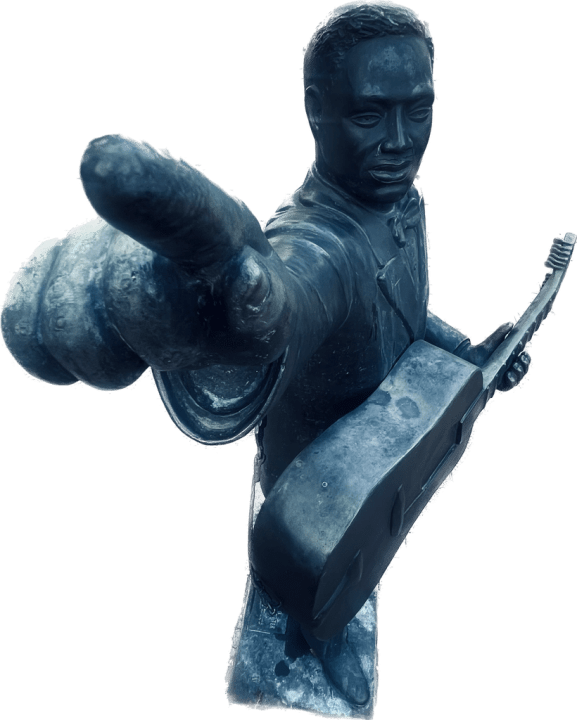
But even though Lead Belly’s birthday wasn’t, his music certainly was recorded.
Dr. Gary Joiner, Department Chair of History and Social Sciences at Louisiana State University in Shreveport, said Lead Belly’s life in Caddo Parish, especially his escapades in St. Paul’s Bottoms, came alive through his music.
“Huddie Ledbetter changed American music forever. His songs are still recorded, and his manner of playing and singing are mimicked even today,” Joiner told KTAL NBC 6 News in Sept. 2023.
But after Lead Belly’s was born in northwest Louisiana and before he became a world-famous musician, Lead Belly had a voice so mesmerizing he opened the gates of prisons by simply singing.
Keep reading to find out how.
He could open prison gates with his voice.
Huddie Ledbetter was born on the Jeter Plantation near Mooringsport, Louisiana, where he grew up in violence-embedded poverty.
Lead Belly was a big man. Around his neck was a white scar that stretched from ear to ear. Twice, he went to jail on murder charges, and in both cases, he emerged from the jail, prison, or penitentiary with a guitar in his hands before serving his complete sentence.
He was that talented.
The first time Lead Belly sang his way out of prison was in Texas, where he was in for a 1918 for murder. He got his early release in 1925.
Then, in 1930, Lead Belly was convicted and sentenced to prison again, this time in Louisiana. John A. Lomax asked Louisiana Governor O.K. Allen to open the prison gates of Angola and let Lead Belly out.
Angola, mind you.
As in one of the country’s most notorious maximum security prisons–that Angola.
And O.K. said that was okay.
But the story of John A. Lomax is a short story of its own.
Who was John A. Lomax?
John A. Lomax was an educated Mississippian who both earned and was gifted the incredible opportunity to record and help preserve America’s cultural music in an era when not much was recorded.
After attending and graduating from the University of Texas, Harvard University, and Columbia University, Lomax took off for the Deep South and recorded prison musicians–and we’re not talking about the jailers. In the process, Lomax met Lead Belly and helped him regain his freedom. Lomax also recorded such greats as Woodie Guthrie, Jelly Roll Morton, Muddy Waters, and Burl Ives along the way.
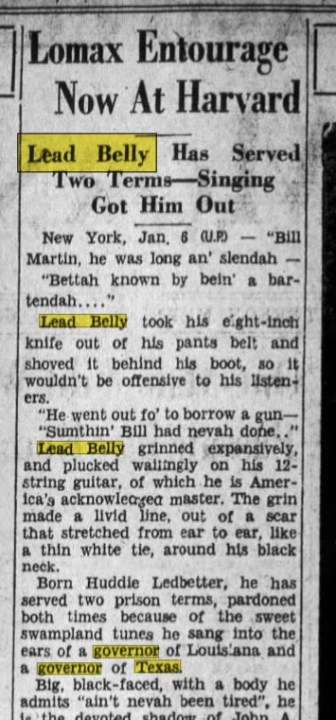
Lomax also helped Lead Belly attain a career in music that has since inspired generations of musicians.
Lead Belly’s work later became foundational in Shreveport’s music history, but his influence wasn’t confined to northwest Louisiana, or even Louisiana. His legacy spanned much of the world.
Here are a few of the musicians he influenced:
Lead Belly’s influence on rock and roll
Huddie “Lead Belly” Ledbetter predated some of the best names in rock and roll when he recorded songs like Midnight Special, later sung by Creedence Clearwater Revival.
Listening to Lead Belly’s Black Betty will give shivers to those in northwest Louisiana who love Ram Jam’s version of Black Betty.
It can come as quite a shock when you hear Lead Belly’s House of the Rising Sun and realize The Animals weren’t the first to sing this song.
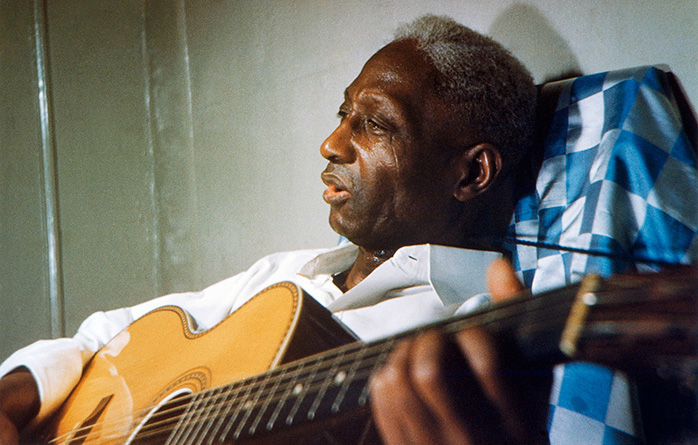
Lead Belly wasn’t just a little bit ahead of his time. He was more than 100 years ahead of his time. In an era of lynchings and absolute lawlessness that hid behind badges and oak trees, Lead Belly dared to tell stories that desperately needed to be said. He was intriguing and, obviously, brilliant, and Lead Belly told truths through lyrics that couldn’t have been spoken aloud in northwest Louisiana otherwise.
Maybe it was the way Lead Belly’s chords seemed to bounce along his guitar strings like little kids jumping on Momma’s bed. Or perhaps the licks Lead Belly hit on his 12-string were heard so well because his style was out of character for blues, folk, and southern music.
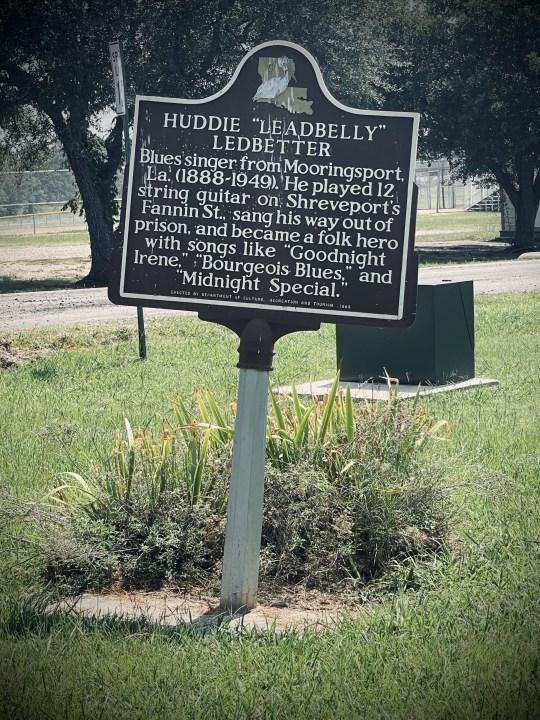
Or perhaps it was the way Lead Belly sang songs of heartbreak, redemption, joy from simple moments, and wallowing in one’s mistakes–especially in love.
Lead Belly played and sang in his own way. He could clap and sing to a beat listeners would have to think hard to match.
KTAL recently sat down with Brother James T. Sims, the Mayor of Oil City, Louisiana, where Lead Belly worked in the oil fields before he became a music legend.
“He worked in Oil City. He was born in Mooringsport but worked here and had family here for many years. There’s a connection here with him. A family member came by not long ago and asked for a proclamation from the town, and we made a Huddie Ledbetter day in Oil City,” said Sims.
Without Lead Belly, there would have been no Beatles
Without Lead Belly, there would have been no British band called the Beatles. But don’t take our word for it.
“No Lead Belly, no Lonnie Donegan. Therefore, no Lead Belly, no Beatles,” George Harrison once quoted.
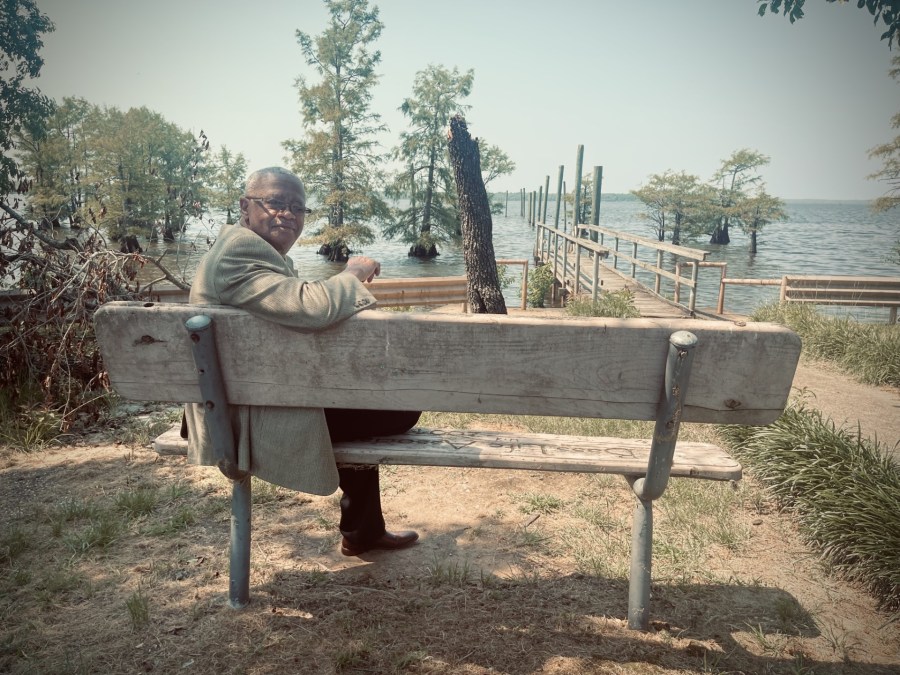
Lead Belly was Kurt Cobain’s favorite artist. Don’t believe that’s possible? Here’s Kurt Cobain singing In the Pines, followed by Lead Belly’s version.
As new generations discover the recordings of Luddie Ledbetter and draw connections to places like Mooringsport, Shreveport, and Angola, his legacy begins to dawn upon us all. In northern Louisiana, where Luddie Ledbetter was raised, there are historical markers and thousands of fans who still listen to his music like he just released it yesterday.
Lead Belly died in 1949. He was posthumously inducted into the Rock and Roll Hall of Fame in 1988.
Latest Posts
Suggest a Correction
This post was originally published on this site be sure to check out more of their content.






